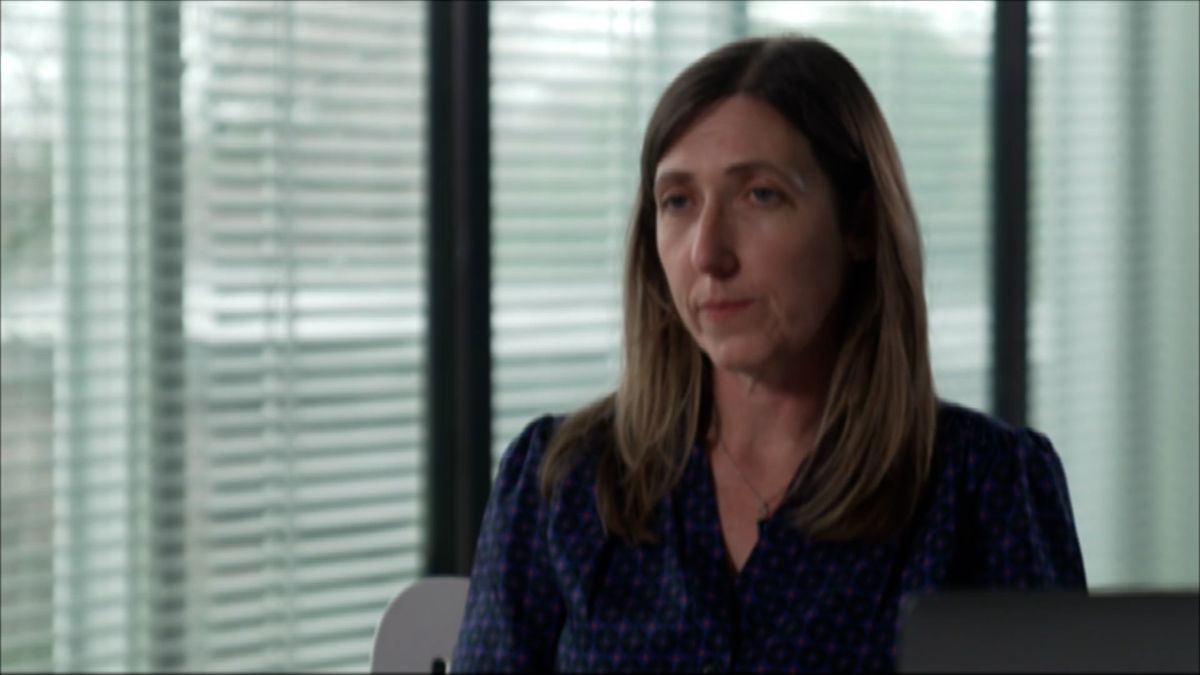RTÉ Prime Time experiment reveals disturbing content recommended to 13 year old TikTok users in Ireland
In response to growing concerns raised regarding the adverse impact of TikTok content on the mental health of young teenagers, RTÉ’s Prime Time undertook an investigative experiment creating new TikTok accounts set to an age of 13 years. The shocking findings were revealed to viewers on Tuesday on RTÉ One and are now available on RTÉ Player here.
The investigation sheds light on the social media platform’s potentially detrimental effects on the mental health of young teenagers as within 20 minutes, Prime Time was being shown videos directly referencing self-harm and suicidal thoughts. By the end of an hour of scrolling, TikTok’s recommender system was showing a stream of videos almost exclusively related to depression, self-harm, and suicidal thoughts to the users it believed to be 13 years old.
Prime Time‘s experiment involved the creation of three new TikTok accounts, each set with an age of 13 years old and using separate sim cards for each new user. Without actively engaging with content or searching for specific topics, Prime Time observed the videos recommended by TikTok’s algorithm.
The content was then shown to the Chair of the Faculty of Child & Adolescent Psychiatry in the College of Psychiatrists of Ireland, Dr Patricia Byrne, and Dr Richard Hogan, a psychotherapist who specialises in working with families.
“I work in this area every day… but even for me, seeing that was very emotional and provokes a very strong, very strong emotional reaction,” Dr Patricia Byrne said. “I didn’t expect to feel as emotional as I did watching it, but they’re very powerful imagery and very intense.”
Dr. Richard Hogan, a psychotherapist specialising in working with families, described his emotional response as “deflated” and “angry.” “I find myself getting emotional watching that because I work with so many brilliant teenagers, so many wonderful teenagers who have been pulled into the murky world of serious mental health issues because of things like that,” he added, responding to one of the videos referencing suicide. “It is absolutely suggesting suicide as a course to deal with your psychological upset there. I mean, that is, that is heinous,” he told Prime Time.
The investigation’s findings underscore the need for action to address the harmful impact of social media algorithms on vulnerable young users. Representatives from TikTok will today meet in front of an Oireachtas Children’s Committee, while at the weekend Tánaiste Micheál Martin stated in his Ard Fheis speech that social media platforms must get children off their apps.
Statistics about rates of self-harm in Ireland are compiled by the National Suicide Research Foundation, however, they only cover instances which result in people attending emergency departments. Since 2002, when the foundation began collating the data, there has been an increase in the number of presentations to emergency departments by approximately 18%. What particularly concerns consultants is the high and growing numbers of teenagers presenting.
“What we know is that every year the age group that has the highest rate of self-harm is those aged 15 to 19 years but of huge concern is, over recent years, the age group with the most rapid increase in rates in self-harm is those aged 10 to 14 years. And that is really a worrying sign,” said Dr Patricia Byrne.

TikTok’s algorithm, which drives users towards content, has come under scrutiny. Salvatore Romano, Head of Research at AI Forensics, emphasised the algorithm’s role in promoting self-harm as a coping mechanism, exacerbating distress for vulnerable individuals. AI Forensics, a Portugal-based research organisation, carried out a similar exercise as part of a report examining the impact of TikTok on teens in the US, Kenya and Philippines with Amnesty International in 2023.
In response to queries from Prime Time, TikTok stated its commitment to addressing mental health issues and providing support for users in distress. However, concerns persist regarding the platform’s efficacy in safeguarding young users from harmful content. After conducting the experiment, Prime Time gave TikTok the usernames of the accounts set up which allowed TikTok to have access to all the videos that had been shown to the accounts and also provided screenshots from ten example videos. Seven of these videos have since been removed however TikTok said “RTÉ’s test in no way accurately represents the behaviour or experiences of real teens who use our app… Out of hundreds of videos that would’ve been seen during RTÉ’s testing, we reviewed ten that were sent to us and made changes so that seven can no longer be viewed by teenagers.”
The European Commission recently launched an investigation into TikTok’s practices, focusing on the platform’s alleged failure to adequately protect children. With TikTok’s EU headquarters located in Dublin, Coimisiún na Meán, holds significant responsibility for regulating the platform’s operations within the EU. Johnny Ryan, Senior Fellow at the Irish Council for Civil Liberties (ICCL) said: “Our regulator, Coimisiún na Meán, has the power in law to tell TikTok or any other company in this same category, ‘stop your algorithm that is hurting our kids, that is causing self-loathing, self-hate, suicide in our children. Switch that off.’ And it has the power to do that.”
Watch Prime Time on RTÉ Player and read the digital report at RTÉ.ie/Primetime.
The programme will also feature an exclusive interview with American immunologist Anthony Fauci.